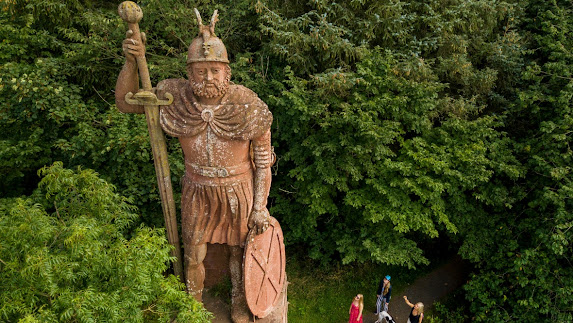On 1 October 1299, shortly after the Anglo-French peace treaty, Philip the Fair turned his attention to the ongoing conflict in Burgundy. He ordered one of his knights, Geoffrey d'Aucelles, to guard the city of Gray from Jean de Arlay and his confederates. Any ransoms were to be handed over to Philip, though Geoffrey was allowed to keep the profits of captured armour and horses.
The rebels in Burgundy had been at war with Philip for over a decade. He wanted to make the county part of a greater France, but Jean de Arlay and his followers wished to remain part of the Holy Roman Empire. To that end they allied with Adolf of Nassau, the titular Holy Roman Emperor, and Edward I of England.
In March 1298, after the initial truces with France, Edward renewed his military contract with the Burgundian rebels. In exchange for further English subsidies, they would continue to make war on Philip and harass his flank, distracting him from Edward's affairs in Scotland.
Now, when final peace talks took place at Rome in the summer, Philip refused to allow the Burgundians to be included in the treaty. This was for the same reason as Edward's insistence that John Balliol and the Scots be excluded: the French king wished to impose his own settlement on Burgundy, without papal interference.
As a result, the war in Burgundy continued. Whether the rebels were still taking Edward's money is uncertain, though he might have considered it worthwhile to keep the subsidies going. As Philip's instruction of October 1299 shows, the rebels were still giving him trouble over a year later. Gray, on the banks of the Saone, was an important river port and trading centre.
Jean de Arlay, the leader of the anti-French confederation, was not dissimilar to William Wallace. Both men fought for years against an aggressive foreign power; both continued to fight even after their allies had fallen away or submitted; both were outnumbered and out-resourced.
The difference lay in Jean's status. He was the head of a powerful family, with political and blood ties to most of the other noble families in Burgundy. As such he was too important to kill, so Philip sought to co-opt him. In 1301, Jean and his followers finally agreed to surrender. After agreeing to pay war damages, they were all pardoned, while Jean was made Philip's seneschal of Burgundy.
This was the equivalent of Wallace agreeing to become Edward I's lieutenant of Scotland. Wallace, of course, was a hard-liner, and absolutely refused to submit on any terms. Or was he? At least one English chronicler, Pierre Langtoft, claims that Wallace offered to surrender to Edward in 1304, in exchange for a pardon and a plot of land. However, the king angrily refused.
Several recent historians refuse to accept this tale because it reflects 'neither the Wallace of history or legend'. One cannot help but detect a whiff of hero-worship here: Wallace is perceived as the ultimate diehard hero, and diehards don't surrender. Yet he was only human, after all, and no sane person wants to die on a gibbet. None of us will (hopefully) ever have to make such choices.

No comments:
Post a Comment